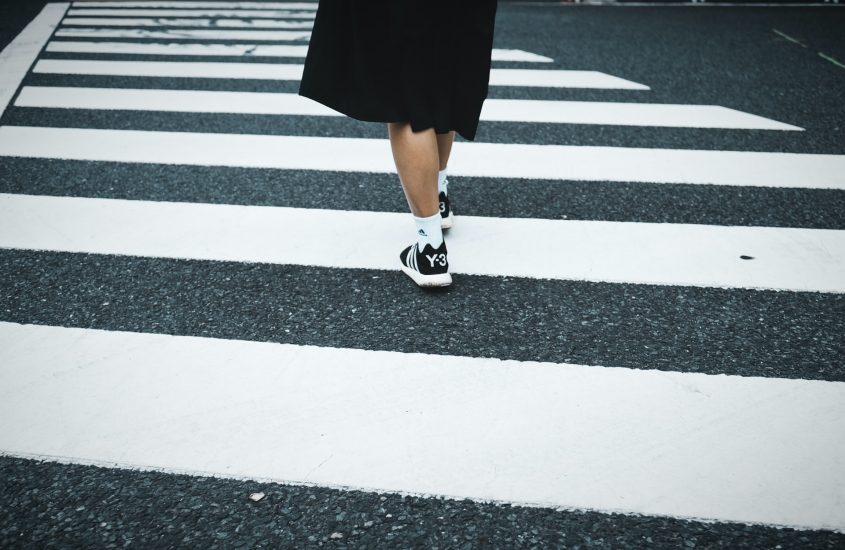I was invited to participate in a podcast about empathy and traffic and I wanted to share what we talked about it.
The podcast was part of the content of FCA – Fiat Chrysler Automobiles, as an action in support of Maio Amarelo campaign, and it is intended to raise awareness people for safer traffic.
There are several questions that instigate us on both topics, but I wanted to start with one of them: why talk about traffic at a time when we are circulating as little, due to social isolation?
Indeed, the traffic of people in different forms has reduced significantly, also contributing to the reduction of air pollution, as is being monitored by NASA in this pandemic period, but I believe that the distance from the problem allow us to analyze it from a better angle and organize ourselves to implement measures to minimize it. In addition, the retaking of the people movement will require new parameters of health security, especially thinking about collective transport and shared vehicles and we need to start, now, this discussion to prepare for this retaking safely to the health of all.
HEALTH AND WELL-BEING
Although they look like different topics, pandemic and traffic safety, when we look at the global sustainability agenda, are treated under the same umbrella: Health and Well-Being. Third Sustainable Development Goals (SDG) is just this topic and one of the targets is “up to 2020, halve global road accident deaths and injuries.”
So an important first clarification is that we are talking about the same agenda.
THE CHALLENGE SIZE
According to the Brazilian Ministry of Health, in 2018 (last available data), 32,655 people died as a result of Brazilian traffic. This is almost the total deaths number, on the date I write this article, due to pandemic in Brazil. The biggest victims are motorcyclists, car occupants and walkers, in that order. 82% [Eighty-two percent] of deaths are men in the 20 to 29 years age group.
This is almost the total deaths number, on the date I write this article, for the pandemic in Brazil.
Worldwide, statistics also scare: there are about 1.35 million people who lose their lives in traffic every year, 3,700 people a day.
Instead of this pandemic, into this virus, about which we know little as its structure, vaccines and medicines to fight it, in case of traffic we have many information about what we can do to improve the statistics.
There are just some of the main pillars for changing this reality like education respect to traffic rules, inspection, and rigorous application of the traffic code, defensive driving and technology.
EMPATHY AND TRAFFIC
Right now, we are experiencing chaos, where things do not necessarily have a cause and effect relationship, the way we learn to respond to problems and challenges no longer applies or we need to learn it again. Our technical skills, everything we know is put in check and brings out our humanity.
An important expression of that humanity is empathy with ability to share and understand each other’s emotional state and situation putting us in his place.
No wonder, humanitarian actions were initiated in this period because it essentially connects us.
And when we exercise empathy, we have a greater capacity to develop as human beings and, in my view, after that moment of panic and uncertainty, which will become a positive experience of this very difficult time.
In the case of traffic, this relationship of people in traffic, before the pandemic, in my opinion, was already a great opportunity to develop our empathy and citizenship condition.
Since the choice of private transport over public transport, the individual use of this private transport and attitudes such as not respecting the crosswalk, overcoming a traffic sign, more than infractions or measures that threaten traffic safety, they reflect a very, very individualistic attitude of people when they are in traffic.
This moment of social isolation asks us for an individual, personal sacrifice, for my good (not getting sick), but also for common good (falling sick less does not overburden hospitals, etc.). This kind of attitude is what we have to take to the traffic; how to act individually to protect others, to ensure the well-being and physical health of all.
A lot has been said about the new normal (I confess that I do not like this expression very much and I’m preparing a post to talk a little about why), but regardless of what is to come, of all the changes that this pandemic will bring to the world, we must always assume the same principle ALL AND ANY LIFE MUST BE PRESERVED.
To listen to the full podcast, follow the link below (only in portuguese):

Photo by 贝莉儿 DANIST on Unsplash
